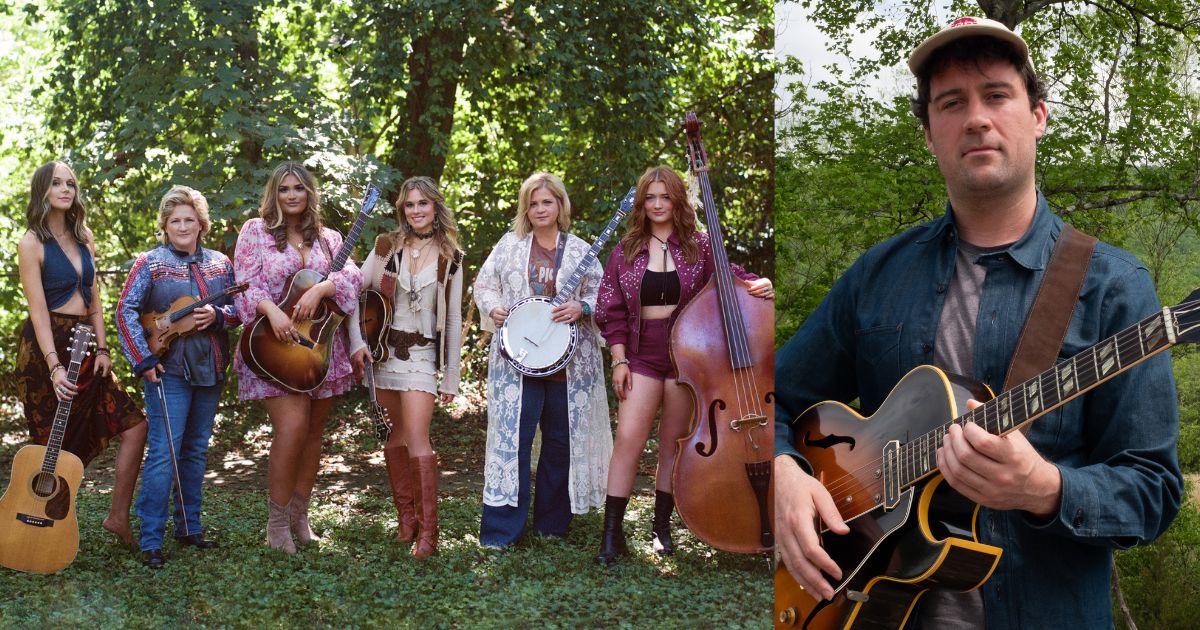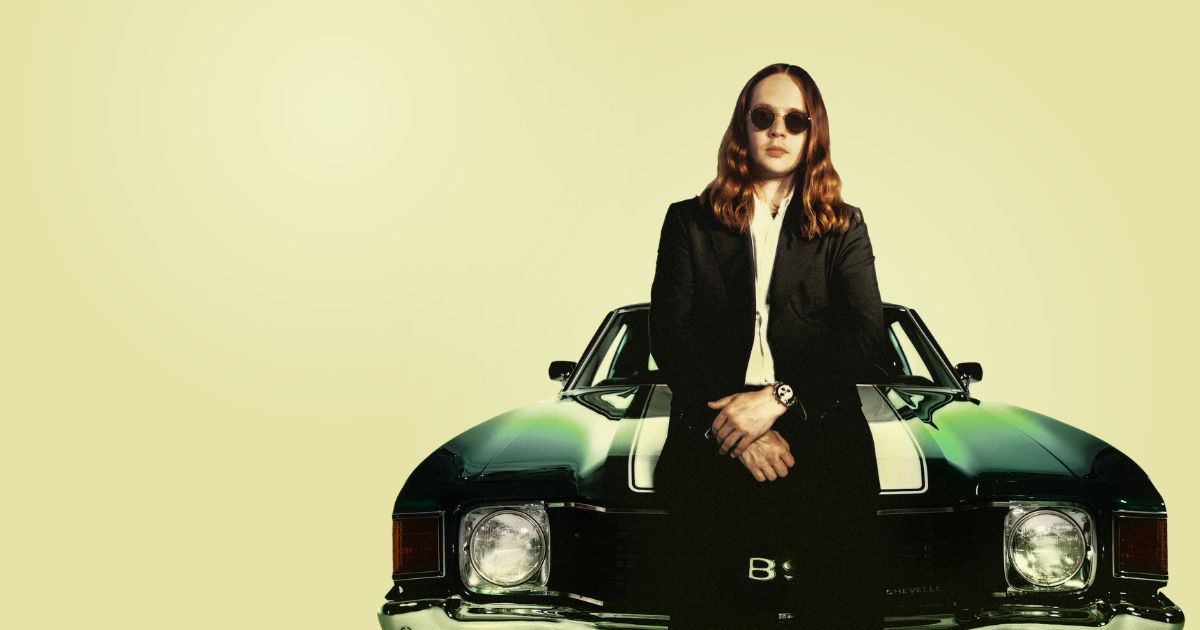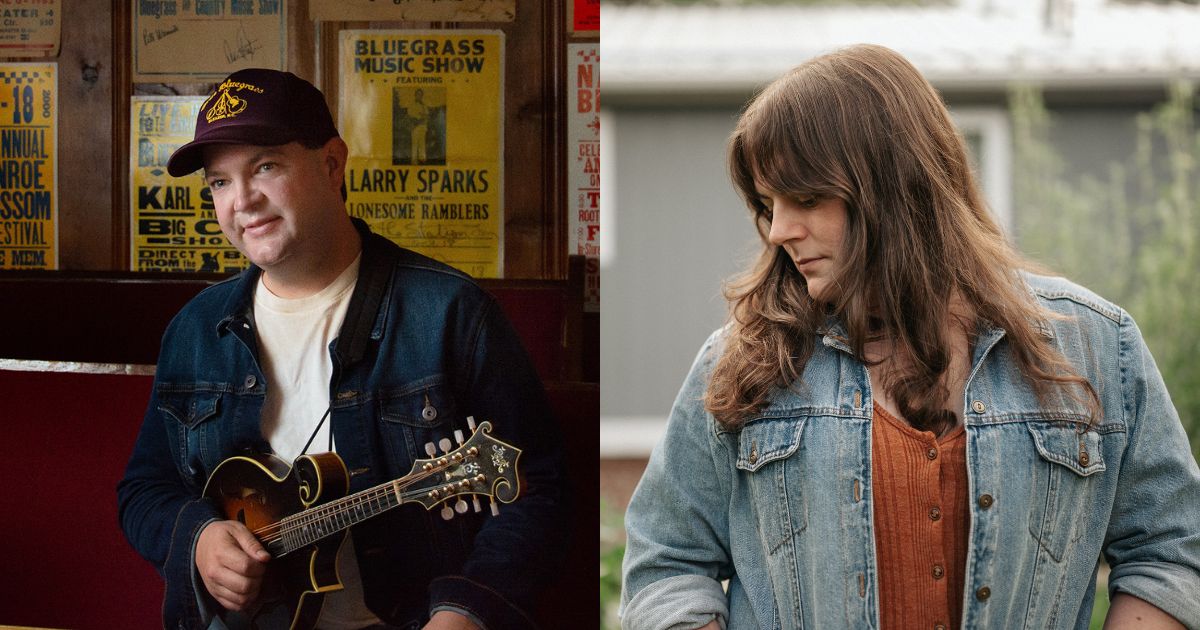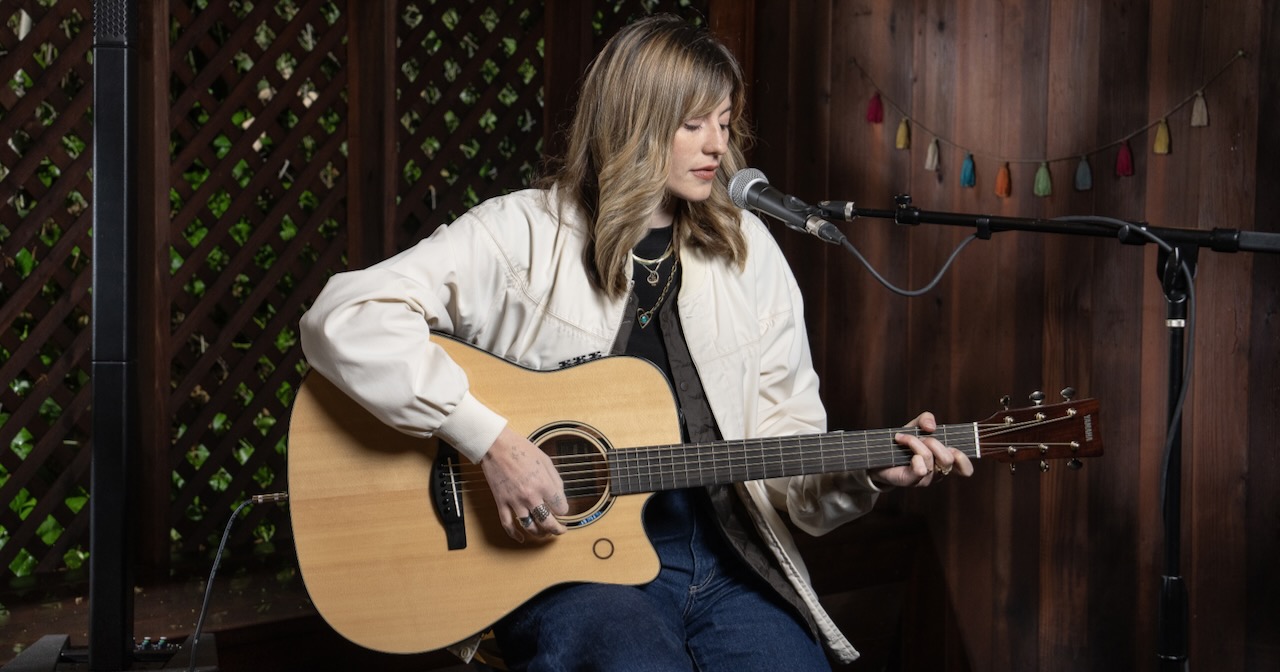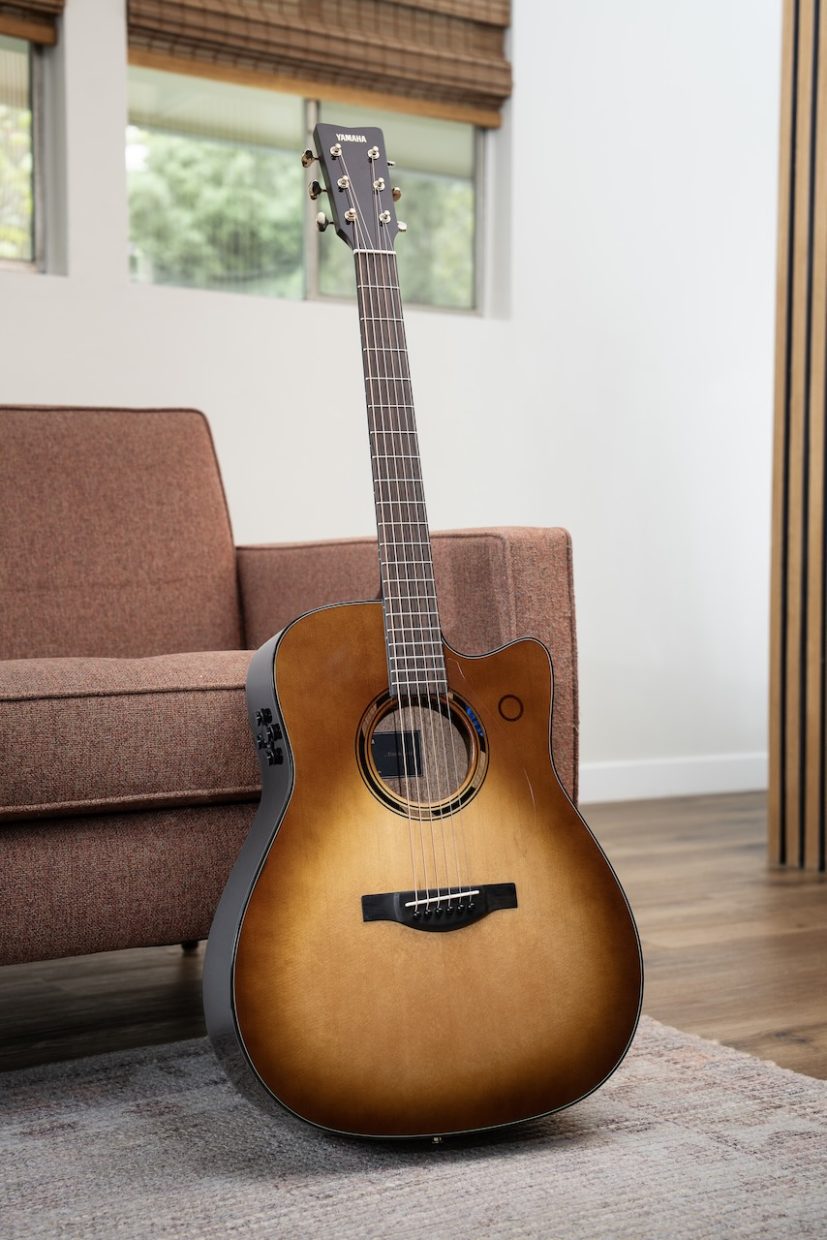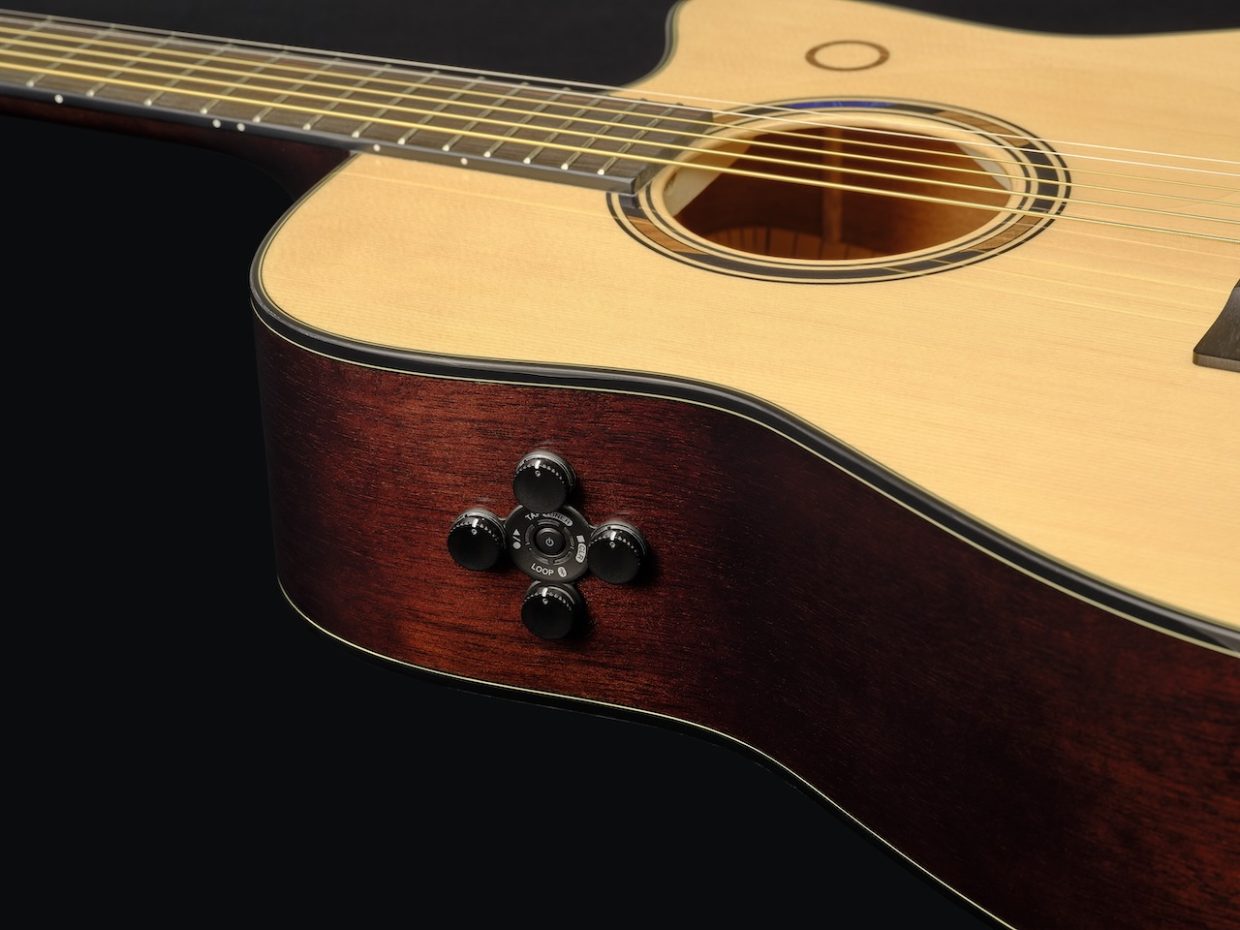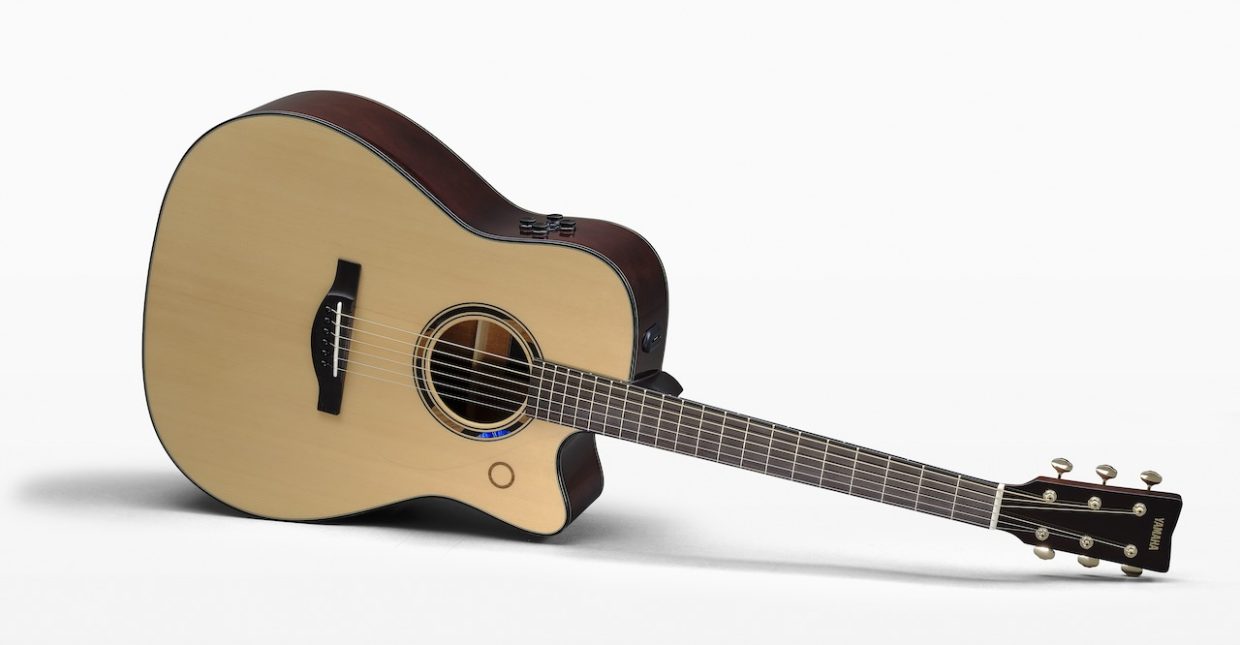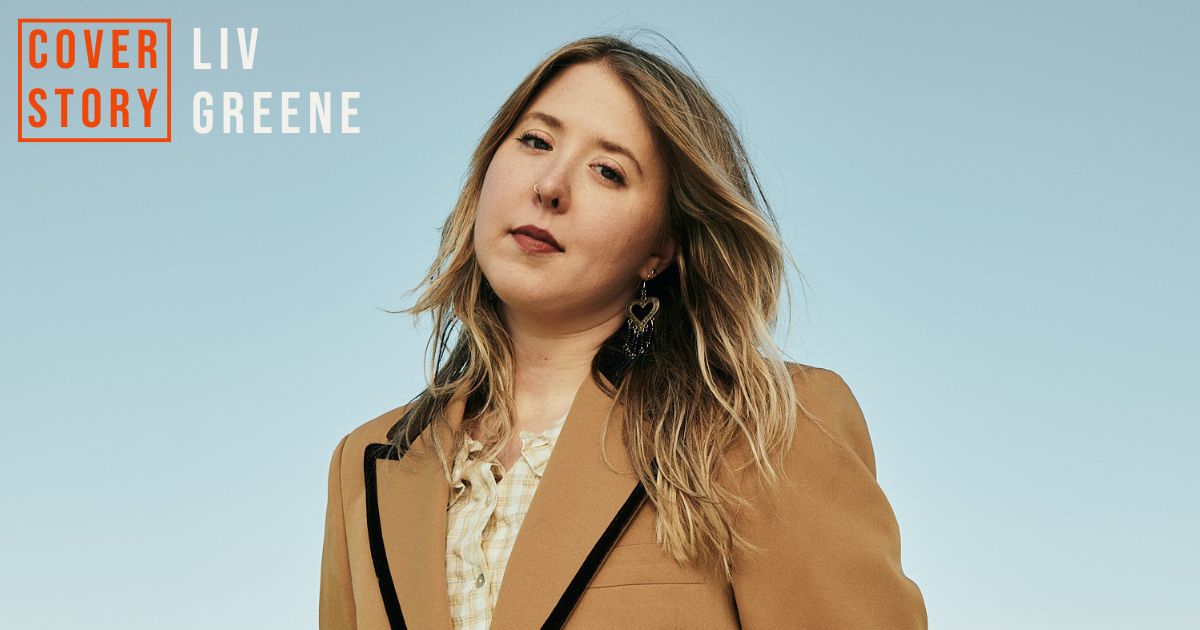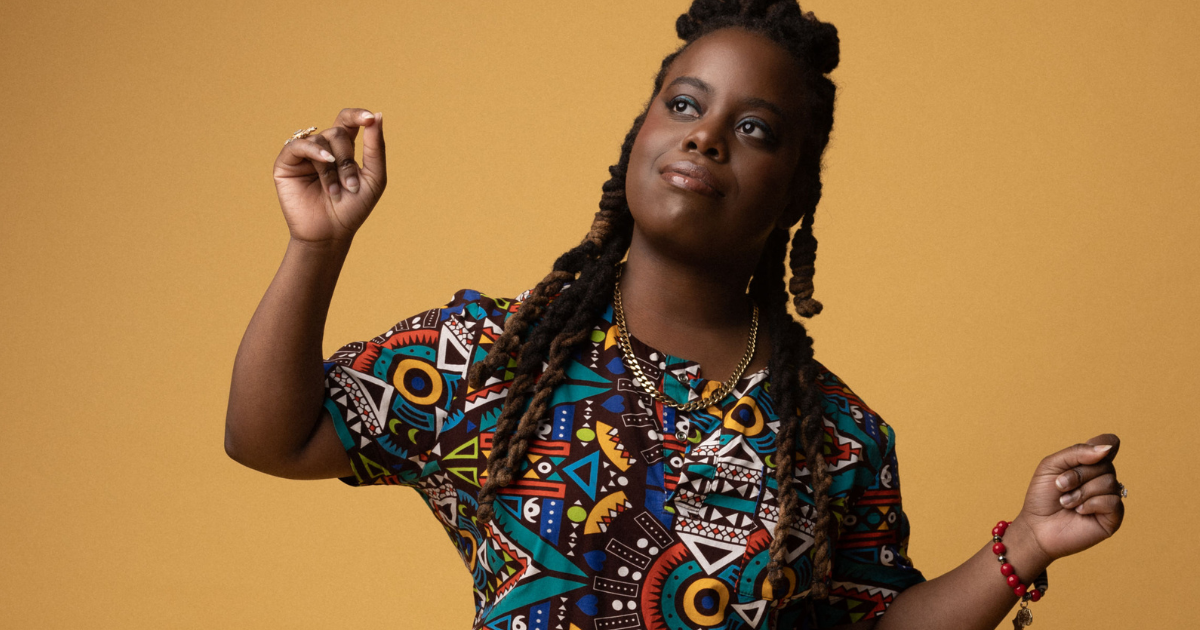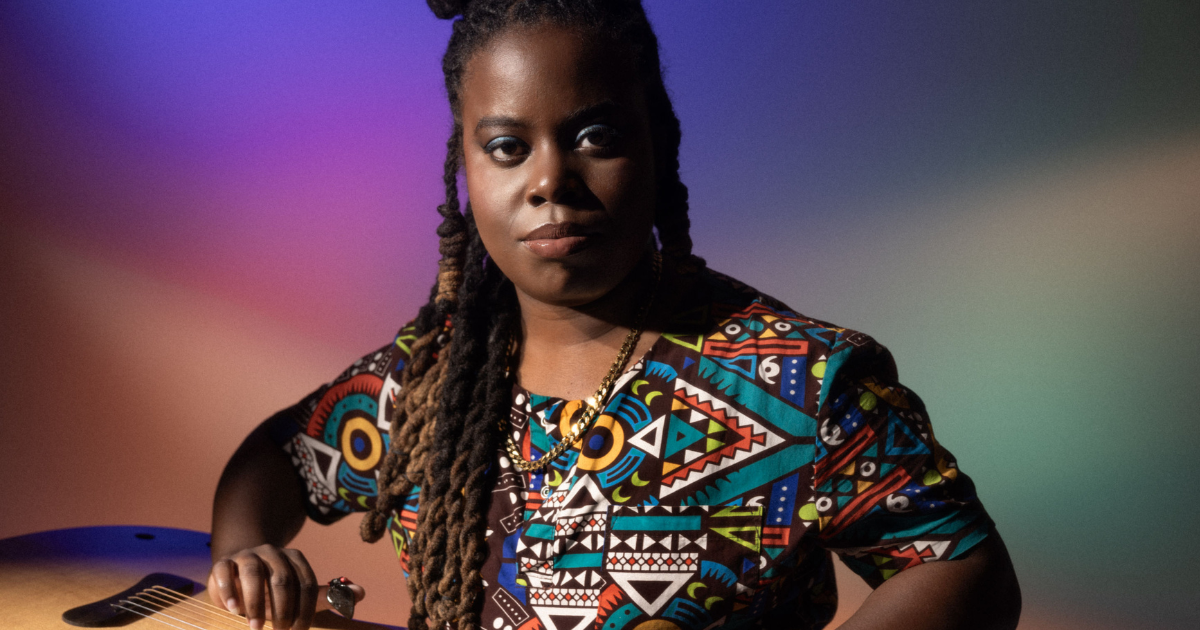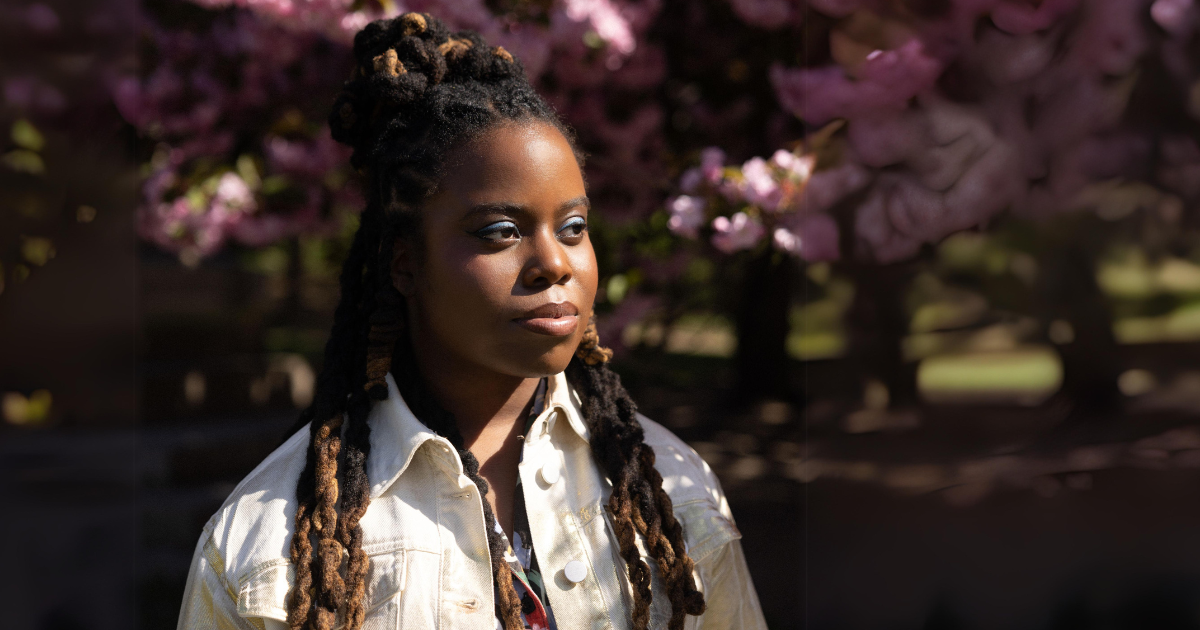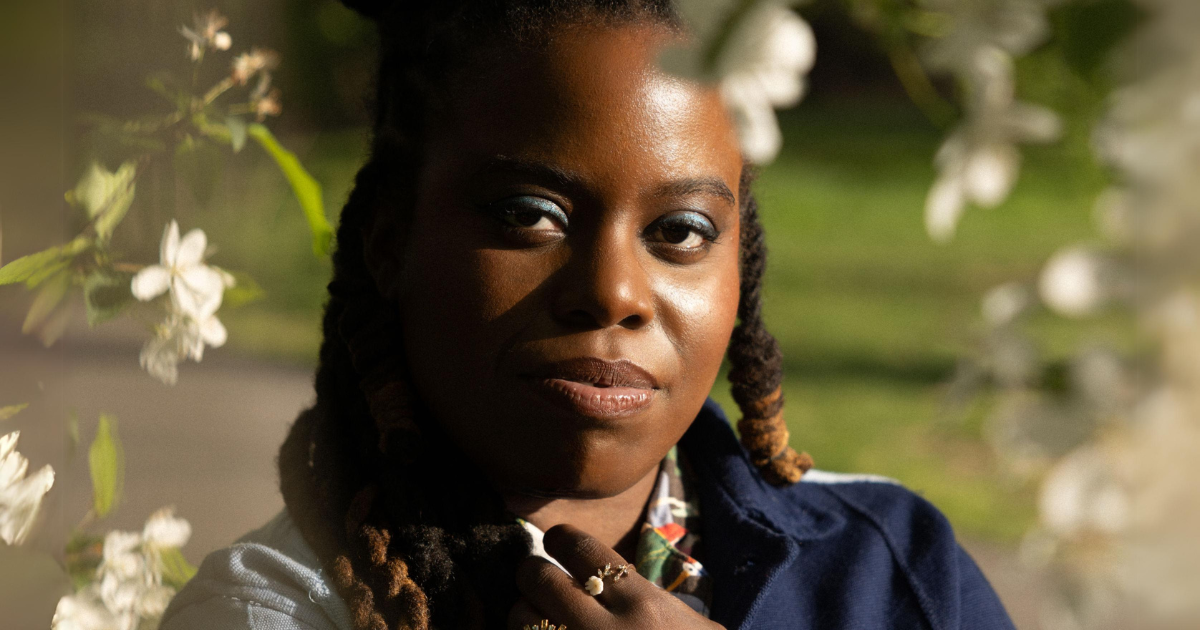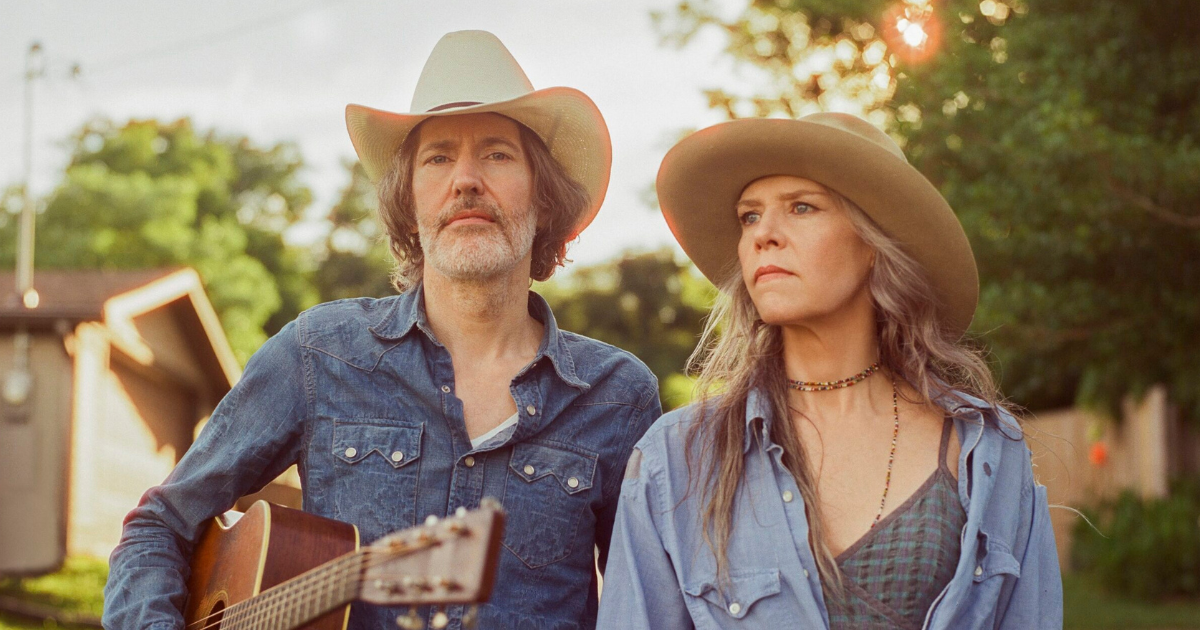Music is a balm, isn’t it? We’re finding that to be especially true in this week’s edition of our premiere round-up, You Gotta Hear This!
Check out a brand new country track from singer-songwriter Phillip Lammonds. Californian-turned-Nashvillian Jake Neuman and his band the Jaybirds brought us a new video for “Saved” off their recent EP, Little Bitty Town, too. Plus, bluegrass supergroup Sister Sadie keep the country vibes going – with a delicious ’90s bent and bluegrass instrumentation – on their brand new single, “Make Me Stay or Make Me Go.”
You’ll also find guitarist, singer-songwriter, and composer Jordan Tice previewing his new song, “Mean Old World,” which drops on Tuesday, November 12, and announces his upcoming album, Badlettsville. In addition, Rachel Sumner’s Traveling Light Sessions video series continues with a live trio performance of “Head East.”
Also don’t miss Kim Richey performing a short set of songs as part of the AEA Sessions captured at Americanafest earlier this year – it’s the latest in our series partnering with AEA Ribbon Mics.
It’s all right here on BGS and, indubitably, You Gotta Hear This!
Phillip Lammonds, “Who’s Right, Who’s Wrong”
Artist: Phillip Lammonds
Hometown: Nashville, Tennessee
Song: “Who’s Right, Who’s Wrong”
Release Date: November 11, 2025
In Their Words: “I wrote ‘Who’s Right, Who’s Wrong’ when I was thinking back to being a kid really digging into the sounds that came from my papa Parton’s wooden upright RCA radio. I sat criss-cross applesauce on countless summer afternoons, just glued to the tones and the sorcery of it all, wondering where the songs came from. How’d they get in that box? Fast forward a half a lifetime or so, I’m still scratching my head. Anyway, the craft in all this has taught me one thing: songs are like fish, they swim around until you catch ’em!” – Phillip Lammonds
Jake Neuman and the Jaybirds, “Saved”
Artist: Jake Neuman and The JayBirds
Hometown: Bakersfield, California
Song: “Saved”
Album: Little Bitty Town
Release Date: November 8, 2024 (video); June 14, 2024 (EP)
Label: Peacedale Records
In Their Words: “‘Saved’ was the first song I wrote when I moved to Nashville. I remember having the first line or so on paper and feeling like I had something, so I immediately went to my number one writing partner – Amanda McCaslin of McCaslin Blue – and asked her what she thought. We spent the afternoon pacing around the yard and putting a line or two down every few minutes until we put something together that I am really proud of.” – Jake Neuman
Video Credit: Directed by Greg D Griffith
Sister Sadie, “Make Me Stay or Make Me Go”
Artist: Sister Sadie
Hometown: Nashville, Tennessee
Song: “Make Me Stay or Make Me Go”
Release Date: November 8, 2024
Label: Mountain Home Music Company
In Their Words: “‘Make Me Stay or Make Me Go’ brings to mind everything I loved about ’90s country. This was written by three of my favorite writers: Jessi Alexander, Al Anderson, and Gary Nicholson. This song screams sawing fiddles and a good ole line dance. Who didn’t love country music in the ’90s? I feel like it’s creeping around the corner again, too; at least I hope it is. This is all of us Sadies tipping a hat to the country music we love so much with our bluegrass instrumentation and some very talented friends to help.” – Deanie Richardson, fiddle
Track Credits:
Jaelee Roberts – Lead vocal
Deanie Richardson – Fiddle
Gena Britt – Banjo, harmony vocal
Dani Flowers – Harmony vocal
Maddie Dalton – Upright bass
Mary Meyer – Mandolin
Seth Taylor – Acoustic guitar, electric guitar
Dave Racine – Drums, tambourine
Russ Pahl – Pedal steel guitar
Catherine Marx – Hammond B3 organ
Jordan Tice, “Mean Old World”
Artist: Jordan Tice
Hometown: Nashville, Tennessee
Song: “Mean Old World”
Album: Badlettsville
Release Date: November 12, 2024 (single)
Label: Padiddle Records
In Their Words: “‘Mean Old World’ is about the inevitable loss and change that life brings. I wrote it rather quickly while watching my neighbors through the windows as they loaded a U-Haul truck to move out. Something about watching material objects being put into boxes signifying the end of an era of someone’s life really struck a chord with me and I was able to live in the feeling long enough to get this song out. That flood of emotion that occurs when a temporal event marks the end of a chapter you will never return to is a familiar sensation that I’ve felt when I’ve moved myself, while I’ve watch my hometown of Nashville knocked down and changed, and when I’ve lost loved ones and had relationships end. Hope it gives you a good cry.” – Jordan Tice
Track Credits:
Jordan Tice – Guitar, vocals,
Aoife O’Donovan – Harmony vocals
Andrew Marlin – Harmony vocals
Patrick M’Gonigle – Fiddle, mandolin
Paul Kowert – Bass
Sean Sullivan – Recording, mixing,
Mark Goodell – Aoife O’Donovan vocal recording
Mike Monseur – Mastering
AEA Sessions, Kim Richey, Live at Americanafest 2024
Artist: Kim Richey
Hometown: Zanesville, Ohio
Songs: “Chapel Avenue,” “Angels’ Share,” “The Absence Of Your Company,” “Take The Cake”
In Their Words: “I really enjoyed working with the gang at [AEA] Ribbon Mics. The mics are great and the folks are wonderful to work with.” – Kim Richey
“Kim is a treasure. Every song is like a masterclass in songwriting and her voice invites you right into tableaus her songs create.” – Julie Tan, AEA Ribbon Mics
Rachel Sumner, “Head East” (Traveling Light Sessions)
Artist: Rachel Sumner & Traveling Light
Hometown: Boston, Massachusetts
Song: “Head East” (Traveling Light Sessions)
Album: Heartless Things
Release Date: November 7, 2024 (video); May 10, 2024 (album)
In Their Words: “‘Head East’ is our next release from Heartless Things (Traveling Light Sessions). It has an extra special place in my heart, because it was the first song I ever wrote. Thirteen years ago, I moved to Boston from the Mojave Desert in California (where I grew up) and felt such a connection with the city and a feeling of possibility that I got there – a feeling I didn’t find in my hometown. This song was a plea to my younger brother to get out and find his good fortune elsewhere, just as I had.
“For this song, Kat Wallace trades her fiddle for the tenor guitar, and Mike Siegel adds a sublime third-part harmony that makes the chorus feel like heaven. ‘Head East’ has had many lives and arrangements, but this one is quite possibly my favorite.” – Rachel Sumner
Photo Credit: Sister Sadie by Allister Ann; Jordan Tice by Cameron Knowler.
